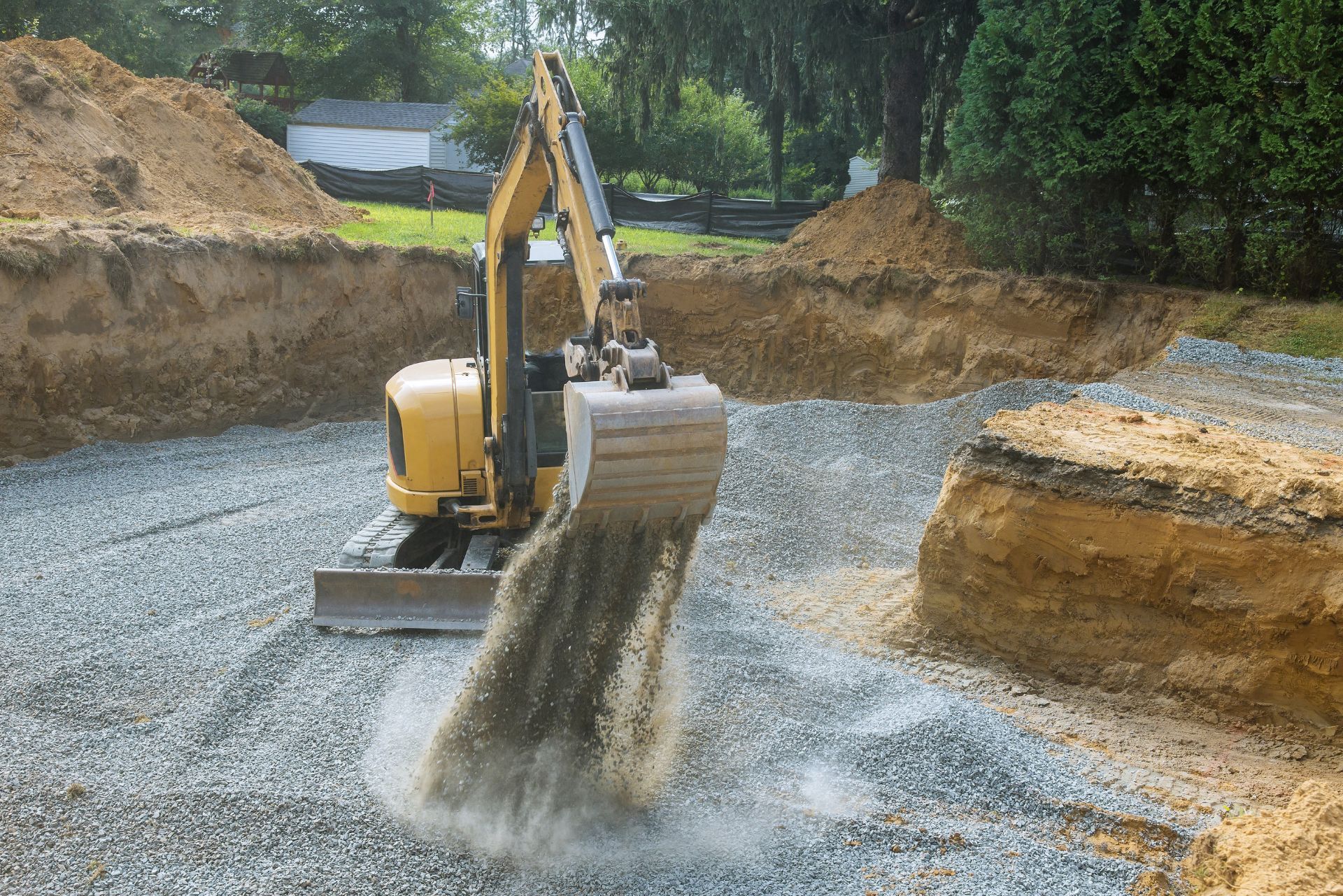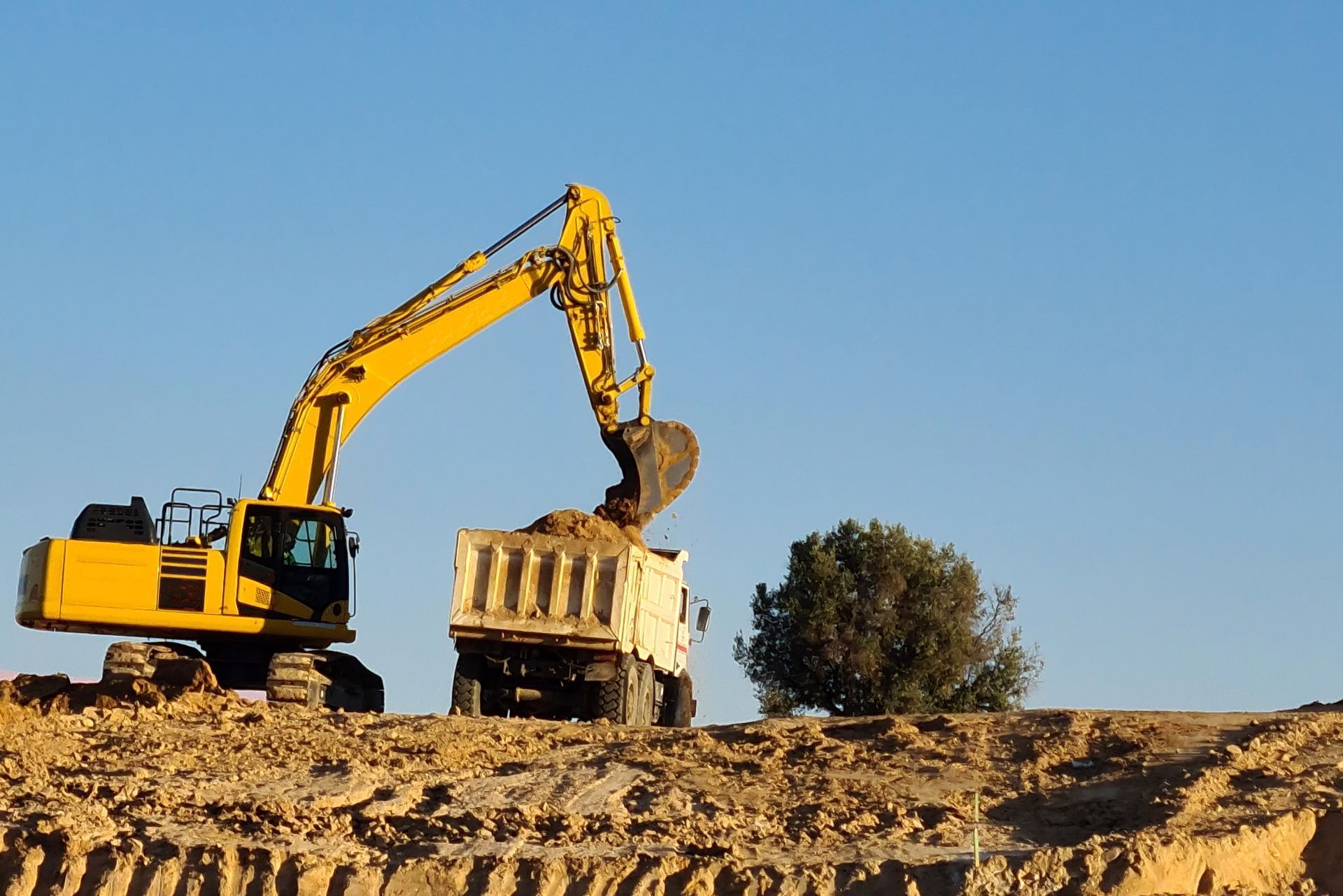Colorado Excavation & Grading Contractor Insurance

8:30am - 5:00pm Mon-Fri
We'll Reply in 15min*
Index
Contact Us
Phone
303-421-5123
Location
9035 Wadsworth Parkway
Suite 2730B
Westminster, CO 80021
Colorado’s excavation and grading industry is booming, with steady growth expected to continue through 2024. As the demand for excavation services rises, so does the complexity of managing risks associated with heavy machinery, unpredictable terrain, and fluctuating insurance markets. Contractors in this sector face unique challenges when it comes to securing adequate insurance coverage that protects their business, employees, and clients.
In this comprehensive guide, we’ll explore everything excavation and grading contractors in Colorado need to know about insurance—from understanding the current market landscape to the types of coverage essential for your operations. Whether you’re a seasoned contractor or just starting out, this article will help you navigate the evolving insurance environment with confidence.
For a detailed look at the industry’s growth and market outlook, you can refer to the
IBISWorld report on Colorado’s Excavation Contractors industry.
Understanding the Colorado Excavation Industry Landscape
The excavation contractors industry in Colorado is on a steady upward trajectory. According to IBISWorld, the industry is expected to grow at an annualized rate of 3.0%, reaching a market size of approximately $3 billion by 2024. This growth is driven by increased construction projects, infrastructure development, and residential expansion across the state.
This expansion means more opportunities for contractors but also increased exposure to operational risks. Excavation work involves heavy machinery, variable soil conditions, and the potential for accidents or property damage. These factors make having the right insurance coverage not just advisable but essential for sustainable business operations.
Moreover, technological advances are beginning to influence excavation practices. For example, a recent study trained a reinforcement learning policy to control standard excavator buckets, achieving a 70% success rate across varied rocks and soil types. While human operators still outperform these systems at 83%, such innovations hint at future shifts in operational safety and efficiency that may impact insurance considerations.
In addition to technology, environmental regulations are also shaping the excavation landscape in Colorado. Contractors must navigate a complex web of local, state, and federal regulations aimed at protecting natural resources and minimizing ecological disruption. Compliance with these regulations not only ensures legal operation but also enhances a contractor's reputation among environmentally conscious clients. As sustainability becomes a more pressing concern, excavation companies are increasingly adopting eco-friendly practices, such as using biodegradable hydraulic fluids and implementing erosion control measures on job sites.
The workforce dynamics in the excavation industry are also evolving. With an aging workforce and a shortage of skilled labor, companies are investing in training programs and apprenticeships to attract new talent. These initiatives not only help to fill the gap left by retiring workers but also promote safety and efficiency on the job. Furthermore, the rise of remote work and digital project management tools has allowed for greater flexibility in operations, enabling contractors to manage projects from anywhere, thus broadening their potential client base and operational reach.

The Current State of Construction Insurance in Colorado
While the excavation industry grows, the insurance market in Colorado is facing significant challenges. Builders and contractors are experiencing a pullback in available construction insurance, characterized by fewer carriers willing to underwrite policies, rising premiums, and reduced coverage options. This contraction has left many contractors exposed and struggling to find adequate protection.
Stephanie Beninati, an independent insurance broker, highlights the severity of the situation: “I think Colorado has been on the brink of an insurance crisis since 2010.” She further explains that the excess and surplus lines—often seen as a fallback for hard-to-insure businesses—translate to “more money, less coverages,” making it difficult for contractors to secure comprehensive policies without paying exorbitant rates.
These market dynamics mean excavation contractors must be proactive in understanding their insurance needs and working closely with brokers who specialize in construction risks. The rising costs and limited options underscore the importance of carefully evaluating coverage limits, exclusions, and policy terms to avoid gaps that could jeopardize your business.
Moreover, the evolving landscape of construction projects, which increasingly incorporate advanced technologies and sustainable practices, adds another layer of complexity to the insurance equation. As contractors adopt innovative materials and methods, they may inadvertently create new risks that traditional insurance policies do not adequately cover. For instance, the use of drones for surveying or the implementation of green building techniques can lead to unforeseen liabilities that require specialized coverage. Therefore, staying informed about the latest trends and their implications for insurance is crucial for contractors aiming to mitigate risks effectively.
Additionally, the regulatory environment surrounding construction in Colorado is also shifting, with new safety standards and compliance requirements emerging regularly. These changes can impact insurance costs and availability, as insurers reassess their risk exposure in light of evolving laws. Contractors must remain vigilant and adaptable, ensuring that their insurance policies align with current regulations and industry best practices. Engaging in ongoing dialogue with legal and insurance professionals can provide valuable insights into navigating this complex landscape, ultimately safeguarding their operations and financial stability.
For more insight into the challenges facing Colorado’s construction insurance market, visit
Insurance Business America’s coverage on Colorado’s insurance pullback.
Key Insurance Coverages for Excavation and Grading Contractors
Excavation and grading contractors require a tailored insurance portfolio that addresses the specific risks of their trade. Here are the primary types of insurance coverage essential for contractors operating in Colorado:
General Liability Insurance
General liability insurance is fundamental for protecting your business against third-party claims of bodily injury, property damage, and related legal costs. Excavation work inherently carries risks of accidental damage to nearby structures or injuries to bystanders, making this coverage indispensable.
On average, excavation contractors pay around $127 per month, or approximately $1,522 annually, for general liability insurance. This cost can vary based on the size of the business, scope of projects, and claims history. Despite the expense, this coverage is a critical investment to safeguard your financial stability.
To understand typical costs and coverage options, you can explore resources like Insureon’s guide on excavation insurance costs.
Workers’ Compensation Insurance
Given the physical nature of excavation and grading work, injuries on the job site are a real concern. Workers’ compensation insurance provides wage replacement and medical benefits to employees injured during employment, while also protecting employers from lawsuits related to workplace injuries.
Colorado law requires most employers to carry workers’ compensation insurance, making it a non-negotiable coverage for excavation contractors. Ensuring your policy accurately reflects your workforce and job risks is essential for compliance and protection.
Moreover, investing in safety training programs can help reduce the number of workplace injuries, potentially lowering your workers’ compensation premiums over time. By fostering a culture of safety, contractors not only protect their employees but also enhance their reputation in the industry, making them more attractive to potential clients.
Commercial Auto Insurance
Excavation contractors often rely on a fleet of vehicles and heavy equipment that travel to and from job sites. Commercial auto insurance covers vehicles used for business purposes, protecting against accidents, theft, and damage.
Because equipment like dump trucks and excavators can be costly to repair or replace, having robust commercial auto policies is crucial. Additionally, some policies may include coverage for equipment while in transit, reducing vulnerability during transport.
Furthermore, it’s important to consider the potential liabilities associated with transporting heavy machinery. Accidents involving commercial vehicles can lead to significant legal and financial repercussions, making it vital to ensure that your commercial auto insurance is comprehensive and up-to-date. Regular vehicle maintenance and driver training can also mitigate risks associated with vehicle operation.
Equipment and Tools Coverage
Excavation machinery and tools represent a significant investment. Equipment insurance protects against loss, damage, or theft of your tools and heavy machinery. This coverage can be customized to include onsite and offsite protection, depending on your operational needs.
Given the high cost of replacing or repairing specialized equipment, this coverage helps contractors avoid costly downtime and financial strain following unexpected incidents. Additionally, implementing a tracking system for your equipment can further safeguard your investments by providing real-time data on their location and usage, which can be beneficial for both insurance claims and operational efficiency.
Pollution Liability Insurance
Excavation projects sometimes encounter environmental hazards, such as contaminated soil or accidental spills. Pollution liability insurance covers claims related to environmental damage caused by your operations, which can be costly and complex to resolve.
While not always mandatory, this coverage is increasingly recommended as environmental regulations tighten and awareness of ecological risks grows. Moreover, having pollution liability insurance can enhance your business's credibility, as clients and stakeholders are increasingly prioritizing environmentally responsible practices. By demonstrating a commitment to environmental stewardship, contractors can differentiate themselves in a competitive market and potentially attract more clients who value sustainability.
Strategies to Navigate Rising Insurance Costs and Limited Coverage
With Colorado’s construction insurance market tightening, excavation contractors must adopt strategic approaches to maintain adequate coverage without breaking the bank. Here are some practical tips:
Partner with Specialized Brokers
Working with insurance brokers who specialize in construction and excavation risks can provide access to carriers and policies tailored to your needs. These experts understand market nuances and can negotiate better terms or identify alternative coverage options. They often have established relationships with underwriters, which can lead to more favorable rates and terms that general brokers might not be able to secure. Additionally, specialized brokers can offer insights into emerging trends in the insurance market, helping contractors stay ahead of potential challenges.
Implement Robust Safety Programs
Insurance carriers reward contractors who demonstrate strong safety protocols. Investing in employee training, equipment maintenance, and site safety reduces claims and can lead to lower premiums over time. Furthermore, fostering a culture of safety not only protects your workforce but also enhances your company’s reputation. Clients are increasingly prioritizing safety records when selecting contractors, and a solid safety program can be a differentiator in a competitive market. Regular safety audits and employee feedback mechanisms can help identify areas for improvement and ensure that safety remains a top priority.
Review and Adjust Coverage Regularly
As your business evolves, so do your insurance needs. Regularly reviewing policies ensures you’re not overpaying for unnecessary coverage or leaving critical gaps. Adjusting coverage limits and deductibles can optimize costs. It’s also wise to stay informed about changes in regulations and industry standards that may impact your coverage needs. Engaging in annual policy reviews with your broker can help you identify any new risks your business may face, ensuring that your insurance remains aligned with your operational realities.
Consider Risk Management Technologies
Emerging technologies, such as automation and AI-assisted equipment control, may enhance operational safety and efficiency. For instance, recent research on reinforcement learning policies for excavator buckets shows promising results in handling varied soil conditions. While human operators currently outperform these systems, integrating such technologies could reduce accident rates and influence insurance risk assessments in the future. Moreover, utilizing drones for site inspections can provide real-time data on project progress and safety compliance, further mitigating risks. As these technologies evolve, they may not only improve operational efficiencies but also become a significant factor in determining insurance premiums, potentially offering discounts for companies that adopt them early.

Conclusion: Staying Protected in a Dynamic Market
Colorado’s excavation and grading contractors operate in an environment of growth and opportunity, but also face significant insurance challenges. With the industry expected to reach $3 billion by 2024, protecting your business through comprehensive insurance coverage is more important than ever.
The ongoing pullback in Colorado’s construction insurance market means contractors must be vigilant, informed, and proactive. Understanding the types of coverage available, partnering with knowledgeable brokers, and implementing strong risk management practices can help you navigate rising premiums and limited options.
For those seeking to stay ahead, keeping an eye on technological advancements and market trends will be key to maintaining both operational excellence and financial security.
Learn more about the evolving insurance landscape and how it impacts Colorado contractors at
Insurance Business America.




